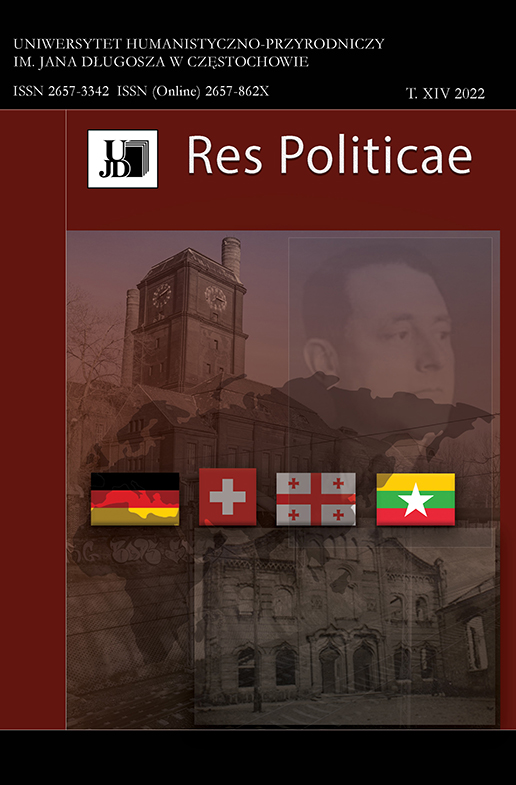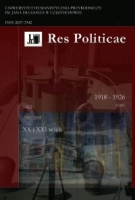Konflikt o niskiej intensywności: sytuacja rosyjsko-gruzińska po 2008 r.
Słowa kluczowe:
Gruzja, konflikt rosyjsko-gruziński, konflikt, graniczenie, borderyzacjaAbstrakt
Podpisanie 12 sierpnia 2008 r. przez wszystkie strony konfliktu rosyjsko-gruzińskiego tzw. sześciopunktowego porozumienia oraz porozumienia o środkach wykonawczych do sześciopunktowego planu spowodowało uznanie konfliktu rosyjsko-gruzińskiego za zamrożony. Kolejni „niewyraźni” politycy wybierani na stanowisko prezydenta i premiera sprawili, że Gruzja i jej problem zostały zapomniane na arenie międzynarodowej i przez światowe mass media. Uznanie takiego statusu jedynie ośmieliło Federację Rosyjską, prowadząc do podjęcia przez nią kolejnych kroków w obszarze okupowanych republik, a w dalszej perspektywie także przestrzeni bliskiej zagranicy. Co więcej, mimo oficjalnego statusu zamrożenia aktywna faza konfliktu była i pozostaje wciąż podtrzymywana przez Federację Rosyjską poprzez utrzymywanie na terytoriach okupowanych Gruzji baz wojskowych i straży granicznej, jak również przez prowadzenie z de facto władzami separatystycznymi procesu graniczenia (tzw. borderyzacji). Skokowe wzrosty napięć na tzw. nieuznawanych granicach wskazują, że żadna ze stron nie chce tolerować dalszego pogarszania się sytuacji bezpieczeństwa w tym obszarze. W świetle ostatnich wydarzeń, w tym ponownej agresji Rosji na Ukrainę, przeciągający się konflikt rosyjsko-gruziński, choć o niskiej intensywności, powinien w sposób szczególny powrócić do agendy rozmów Rosji z Zachodem.




